The following issue is focused primarily of Open Science issues, both from theoretical and practical side. In June 2015 new strategic priorities were announced and set out as a new R&I policy agenda by Carlos Moedas – Commissioner for Research, Science and Innovation: Open Science, Open Innovation, Open to the World. Currently the EU is leading 3Os Strategy and Open Science priorities, in particular: there is a requirement that all research publications funded under Horizon 2020 be openly accessible, free of charge. To get more engaged into the open science agenda Eurodoc will focus its Annual Conference on this topic. This Newsletter will highlight general basic information, groundwork of Open Science, as well as its specific terminology.
Besides H2020 Interim Evaluation made by Eurodoc being published, a short presentation of some key policy papers, including ERA report, is being made. Please also note the information about the upcoming Eurodoc 2017 Conference in Oslo!
Download the Official Newsletter of Eurodoc, Issue #22
]]>
Welcome to a survey on open science and career development by WG Skills under the Steering Group Human Resources and Mobility (SGHRM)!
This survey is aimed at all types and stages of researchers in Europe and particularly encourages early-career researchers to respond. The results of this survey will be used to guide European policy on open science and to improve the career development of researchers. Open science aims to make scientific data and research accessible to all levels of an inquiring society and includes practices such as:
- open data = open sharing of research data
- open source = open sharing of research software/code
- open notebook = open sharing of research notebooks
- open access = open publishing of research results in journals/textbooks and/or depositing them in repositories/archives
- open peer review = open sharing of research peer reviews
- open education = open sharing of education and resources
- citizen science = involving the general public in scientific research.
The survey should take 15-20 minutes to complete and by submitting your survey answers you consent to your personal data being processed.
]]>
Dear Eurodocers, Dear Early Career Researchers! Easter symbolizes the renewal of the life so we wish you all a Good Easter and the resurrection of positive feelings in all our hearts!
]]>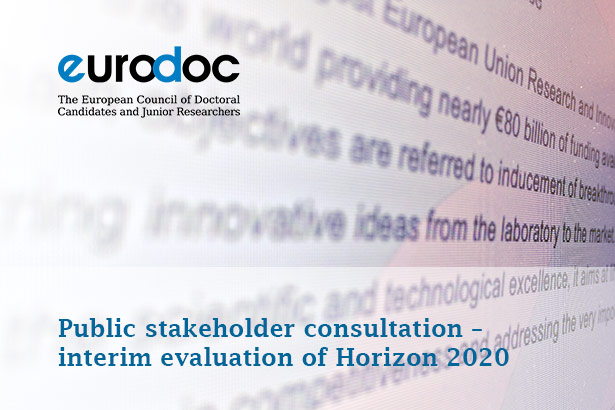
Horizon 2020 is the biggest European Union Research and Innovation programme and the largest in the world providing nearly €80 billion of funding available until the year 2020. Its main objectives are referred to inducement of breakthroughs and discoveries by transferring innovative ideas from the laboratory to the market. By offering funds for promoting the scientific and technological excellence, it aims at lifting the European Union’s economic competitiveness and addressing the very important societal challenges.
The Horizon 2020 programme has just entered its 4th year and time for midterm evaluations has come. Eurodoc welcomes and supports the initiative of the European Commission in public stakeholder consultations and is willing to provide its contribution to this appraisal. We believe that Eurodoc opinions will bring to light early career researchers’ concerns and priorities and will make a valuable input to the future discussions on the implementation of EU research and innovation funding.
Please do not hesitate to contact us by email at board@eurodoc.net
Public stakeholder consultation – interim evaluation of Horizon 2020 (*.pdf, ~340K)
]]>

Are you a woman in science? Do you wish to share your experience?
Then the gender equality working group of Eurodoc would like to interview you and publish this interview on Eurodoc website. If you are ready to volunteer, please send an email at board@eurodoc.net.
These are the questions we want to ask you:
- What is your field of research? What is your area of specialisation within your field of research?
- How do you perceive the situation of women in science in your country? And in your research field/area of specialisation? In your country, is your research field/area of specialisation mostly female or male dominated/oriented?
- Who inspired you to follow a career in science? Is there a colleague or a senior researcher (male or female) that you consider as a mentor or a model? If yes, why do you consider this person as a mentor/model?
- Have you always wanted to be a researcher? If yes, why? If not, why not? What made you doubt or have reservations about becoming a researcher?
- What was/is your preferred employment destination after the PhD (academia, private research, industry*)?
* In line with what is suggested in the Principles for Innovative Doctoral Training (EC, 2011), “the term ‘industry’ is used in the widest sense, including all fields of future workplaces and public engagement, from industry to business, government, NGO’s, charities and cultural institutions (e.g. musea)”.
]]>
On 27-31st of March, 2017, the Eurodoc and Organization of Hungarian PhD and DLA candidates DOSz organized an “International workshop on career development and interdisciplinarity for early stage researchers”, which took place at the University of Debrecen, Hungary.
The aim was to bring more focus on the career and disciplinarity issues among early career researchers, on the issues of postdoctoral schemes. Sessions moderators were experienced Eurodocers, coordinators of the working groups (PhD Training, Mobility), Eurodoc adminsitration (the Board, chaired by the President Ewelina Pabjańczyk). During the thematic workshops participants discussed topics about the equal accessibility to research career; about addressing international mobility and interdisciplinarity issues. For Eurodoc Team internal workshops were organized.
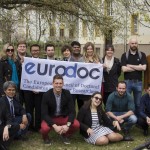





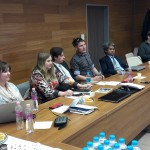
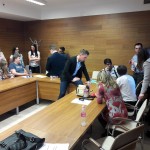
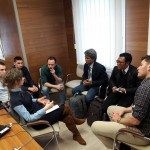

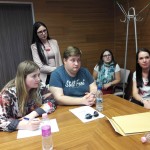
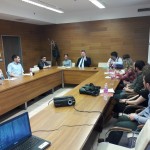


 ]]>
]]>
Abstract: The growing and ongoing diversification of Doctoral Candidates and Graduates’ profiles on the one hand, and the changing character and context of doctoral programmes on the other, has led to a variety of debates on the quality and impact of the doctorate. Within this context, the pioneering and ambitious goal of this policy paper is the replacement of ECTS (European Credit Transfer Scheme) with the promising approach of Learning Outcomes, which focuses on what learners are expected to know and be able to do after the completion of their study programmes. Learning Outcomes provide not only a powerful tool for recognising and quantifying learning achievements, but they are also an effective structure for comparing qualifications or linking obtained knowledge. However, potential pitfalls need to be properly addressed. As for implementation, learning outcomes maybe long, demanding, and therefore costly. As well, every EU country is characterized by a specific socio, economic, and institutional context that can affect how learning outcomes are assessed and defined.
Policy Paper: Recognising the Value and the Purpose of the Doctorate: Eurodoc’s Recommendations (*.pdf, ~455K)
]]>
Dear readers! Eurodoc is pleased to present you our latest issue of the Newsletter, which was prepared by the Doctoral Training Working Group. This issues is aimed, especially, at the doctoral training and career development of ECRs. In this issue:
- The evolution of doctoral education
- Doctoral training in Finland
- Doctoral training in the project SAF21
- Doctoral training and career opportunities in Italy
- Perspective of doctoral education in the Czech Republic
- The Baltic university programme: an international course of PhD candidates
- PhD Summer school for transferable skills development
- Doctoral workshop 2016 in Hungary
- Workshop ‘What future for a PhD holder?’
- EURAXESS: Researcher career skills for career development
- Vitae: Develop yourself as well as your research
- Postdoctoral researchers’ in Europe: Main challenges to employment
- ERASMUS+ Project SuperProfDoc
Download Eurodoc Newsletter, Issue #21, Mar 2017 (*.pdf, ~3,7 Mb)
]]>

Dear Eurodoc delegates, observers, doctoral candidates and junior researchers around Europe,
The European Council of Doctoral Candidates and Junior Researchers (Eurodoc) and The Association of Doctoral Organisations in Norway (SiN) have the pleasure to invite you to the 17th Eurodoc Conference, which will take place on 26-27 April 2017 at the University of Oslo, Norway.
The conference will be guided by the theme “Open Science – Challenges and Opportunities for Early Career Researchers”, and aims at bringing together a blend of Open Science visionaries, international experts, and stakeholders.
Our speakers will provide a close look at the problems of today’s scientific communication, and explore how Open Science offers ways to overcome issues of inequality, research integrity and result reproducibility. Careful attention will be given to the relevance of Open Science for day-to-day working conditions of Early Career Researchers, and which concrete steps can be taken by decision-makers and individual researchers to promote Open Science. The presented measures will have immediate implications for individual researchers and will help contribute solving global challenges.
For more details and registration, please visit http://eurodoc-oslo2017.org and the official Eurodoc Conference 2017 event page on Facebook.
Looking forward to meeting you in Oslo,
Ewelina Pabjańczyk, President of Eurodoc
Vegard Stenhjem Hagen, President of SiN

A large number of major European organisations in the area of science, research, innovation and higher education have written an Open Letter to European Prime Ministers, ministers responsible for those same areas, as well as the President of the European Council and of the European Commission, and Commissioner Carlos Moedas for Research and Innovation to express their concern about recent developments in the US.
European governments and the leaders in the EU are called upon to uphold previous good practices and to work with their counterparts in the US administration to maintain a global science system based on the principles of equality, appreciation of diversity and open communication.
Eurodoc strongly supports this statement.
]]>